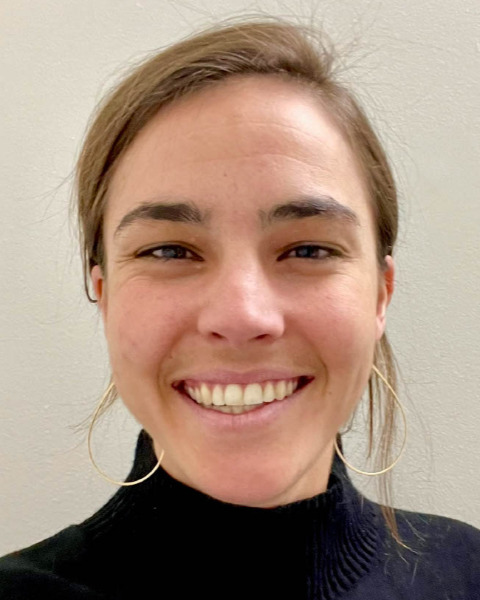Hepato-pancreato-biliary
E193: Expanding immunotherapy options in cholangiocarcinoma: Role of CD27 agonist in combination with PD-L1 and MEK inhibition on antitumor effect and CD8+ T cells

Frances J. Bennett, MD
Surgical Oncology Post Doctorate Research Fellow, General Surgery Resident
Division of Surgical Oncology, Department of Surgery, Winship Cancer Institute, Emory University, Atlanta, GA
Atlanta, Georgia, United States
Frances J. Bennett, MD
Surgical Oncology Post Doctorate Research Fellow, General Surgery Resident
Division of Surgical Oncology, Department of Surgery, Winship Cancer Institute, Emory University, Atlanta, GA
Atlanta, Georgia, United States
Frances J. Bennett, MD
Surgical Oncology Post Doctorate Research Fellow, General Surgery Resident
Division of Surgical Oncology, Department of Surgery, Winship Cancer Institute, Emory University, Atlanta, GA
Atlanta, Georgia, United States
Emilie A.K Warren, MD
Resident, Department of Surgery
Emory University, United States- JH
Jacklyn N. Hammons, n/a
Senior Research Specialist
Department of Hematology and Medical Oncology, Winship Cancer Institute, Emory University, Atlanta, GA, United States - MW
Megen C. Wittling, MSTP
Graduate Student, MD PhD Candidate
Division of Surgical Oncology, Department of Surgery, Department of Microbiology and Immunology, Winship Cancer Institute, Emory University
Atlanta, Georgia, United States - KO
Kailey M. Oppat, MD
Resident
Division of Surgical Oncology, Department of Surgery, Winship Cancer Institute, Emory University, Atlanta, GA, United States - MW
Megan M. Wyatt, MS
Research Lab Manager, Senior Scientist
Division of Surgical Oncology, Department of Surgery, Department of Microbiology and Immunology, Winship Cancer Institute, Emory University
Atlanta, Georgia, United States - GR
Guillermo O. Rangel Rivera, PhD
Graduate Student, MD PhD Candidate
Division of Surgical Oncology, Department of Surgery, Department of Microbiology and Immunology, Winship Cancer Institute, Emory University, Atlanta, GA, United States 
Nilofer S. Azad, MD (she/her/hers)
Co-Director of Cancer Genetics and Epigenetics, Professor of Oncology
Department of Medical Oncology, Sidney Kimmel Comprehensive Cancer Center, Johns Hopkins University School of Medicine, Baltimore, MD, United States- MY
Mark Yarchoan, MD
Associate Professor
Johns Hopkins Hospital, United States - TH
Thatcher R. Heumann, MD MPH
Assistant Professor of Medicine
Department of Medicine, Vanderbilt-Ingram Cancer Center, Nashville, TN, United States - TK
Tibor Keler, PhD
Executive Vice President and Chief Scientific Officer
Celldex Therapeutics, Hampton, NJ, United States 
Shishir K. Maithel, MD, FACS
Professor, Department of Surgery
Winship Cancer Institute of Emory University
Atlanta, GA, United States- CP
Chrystal M. Paulos, PhD
Associate Professor, Director of Translational Research for Cutaneous Malignancies, PI
Division of Surgical Oncology, Department of Surgery, Department of Microbiology and Immunology, Winship Cancer Institute, Emory University
Atlanta, Georgia, United States - GL
Gregory B. Lesinski, PhD, MPH
Professor, Co-Director Translational GI Malignancy Program
Department of Hematology and Medical Oncology, Winship Cancer Institute, Emory University
Atlanta, Georgia, United States
ePoster Abstract Author(s)
Submitter(s)
Author(s)
A phase II trial of dual PD-L1 and MEK inhibition (PD-L1i + MEKi) for unresectable cholangiocarcinoma (CCA) improved progression-free survival. MEKi enhances tumor antigen presentation and T cell tumor infiltration but impairs T cell priming and activation with notable CD27 upregulation. CD27 agonists (CD27Ag) foster T cell stem-like and resident memory phenotypes, negating dampened effect of MEKi on CD8+ T cells. We hypothesize that adding CD27Ag to PD-L1i/MEKi therapy rescues T cell activation and improves antitumor efficacy.
Methods:
Pmel-1 mice CD8+ T cells were cultured in vitro with single, dual, or triple therapy (CD27Ag, cobimetinib (MEKi), αPD-L1). Day 3 flow cytometry characterized CD8+ T cells. Also, syngeneic murine CCA cell line URCCA4.3 (KrasG21D, tp53-/-) was given to C57BL/6 mice, subcutaneously or intrahepatic, followed by ~3 weeks of mono, dual, or triple therapy. CD8- and CD4-depleting antibody was given on the day prior to and following surgery and every 3-4 days afterwards. Tumor and draining lymph node (LNs) lymphocytes were characterized by flow cytometry.
Results:
MEKi alone or with αPD-L1 reduced T cell activation in vitro (dose-dependent effect on CD69+) but was maintained with CD27Ag plus MEKi. Triple therapy reduced tumor growth in mice versus other therapies (p< 0.05). Tumor-infiltrating lymphocytes comprised stem-like (Tcf-1+), effector memory (CD44+CD62L-) and tissue resident memory (CD103+CD69+) phenotype in triple versus single or dual therapy (p< 0.01, p< 0.0001, p< 0.0001 respectively). CD8+ stem-like cells (Tcf-1+Tim-3-) were equally present in all arms draining LNs but were only in triple therapy arm tumor (p< 0.05). Cell depletion studies showed CD8+ but not CD4+ cells were required for triple therapy efficacy in vivo. CD4+-depletion inhibited tumor growth in no treatment mice. Lastly, an aggressive orthotopic liver tumor model showed improved median survival in triple therapy versus control (37.5 days versus 29.5 days, p< 0.01).
Conclusions:
CD27 agonism rescues MEKi-blunted T cell activation. CD27Ag/MEKi/PDL1i triple therapy bolstered T cell trafficking with stem-like, effector, or resident memory properties, enhancing antitumor response. Response to triple therapy is CD8+-dependent. Presence of CD4+ cells in the tumor microenvironment may permit unchecked tumor growth. Motivated by these findings, this combination therapy is being evaluated in metastatic CCA patients in an ongoing Phase II clinical trial (NCT04941287).
Learning Objectives:
- Define the negative effect of MEK inhibition alone on T cell activation and priming, and understand that this impacts the antitumor response.
- Understand that CD27 agonist therapy combined with MEK inhibitor and PDL1-inhibitor against cholangiocarcinoma permits rescue of T cell activation and enhanced antitumor responses.
- Describe the importance of CD8+ T cells for efficacy of triple therapy with a MEK inhibitor, PD-L1 inhibitor, and CD27 agonist against cholangiocarcinoma.
